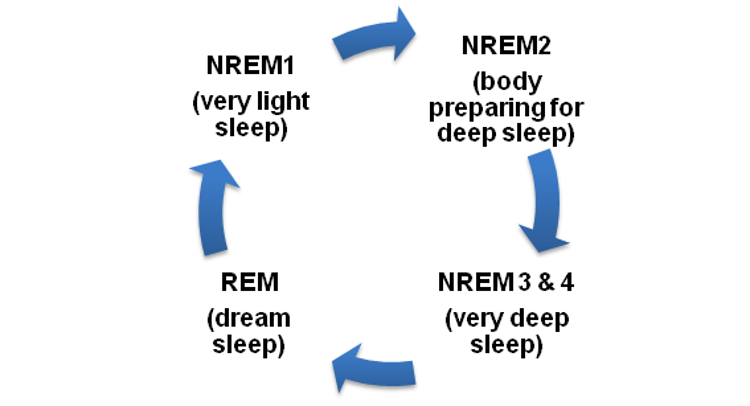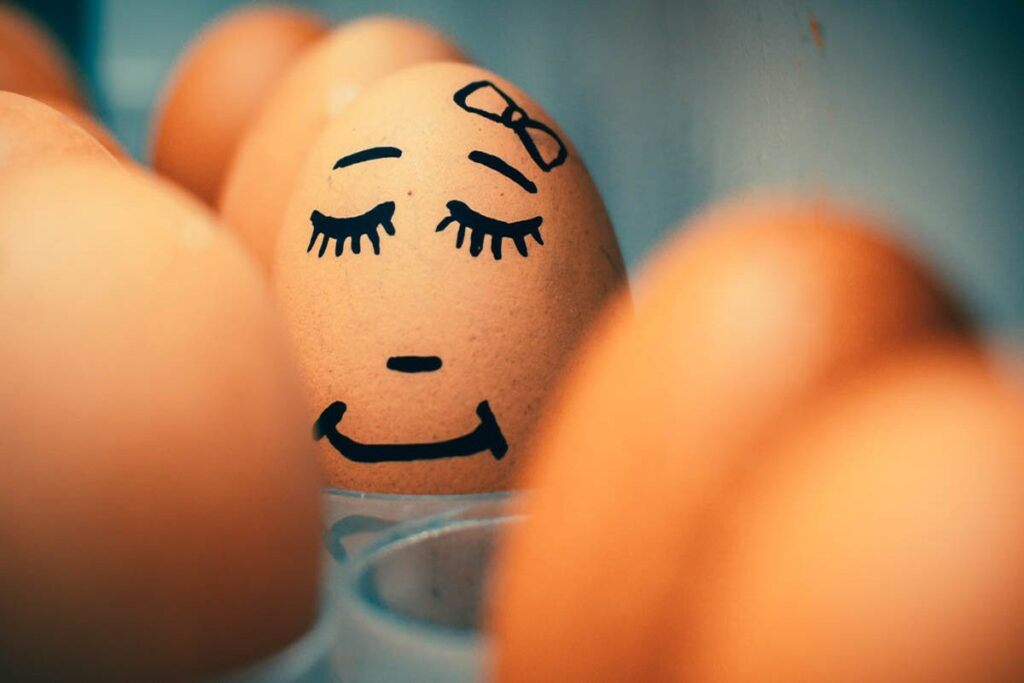Understanding the Sleep Cycle
Understanding the Sleep Cycle
- Physical rest: Our bodies need sleep to recover from the day’s activities. Just being alive and active drains our resources, and it’s when we’re deeply asleep that our bodies repair and refresh themselves. The more active we are, the more rest we need.
- Mental rest: Our minds continue to work while we’re asleep. It’s thought that when we dream, we’re sorting out things that have happened to us during the day.
The stages of sleep:

- Non-Rapid Eye Movement (NREM) 1 – this is very light sleep. You might jerk or twitch during this stage.
- NREM 2 – this is when your body gets ready for deep sleep.
- NREM 3 and 4 – deeper sleep. This is the sleep stage that provides the most rest for your body and mind.
- REM (Rapid Eye Movement) – This is the stage where your eyelids flutter, which is where it gets its name. It’s during this stage that you dream, and it’s very important for mental and emotional health and development.
We start off in very light sleep and go through the different stages until we’re in very deep sleep. We then move into dream sleep and slowly return to very light sleep, until we’re almost awake again, and then we once again go back through the stages into deep sleep. This usually happens twice at the start of a night’s sleep and then, although our sleep continues to cycle through lighter and deeper sleep, we tend to stay in the lighter two stages for the rest of the night.
What happens in the different stages?
It’s when we’re in deep sleep (stages 3 and 4) that our muscles get the rest that they need and our bodies try to repair the damage that we do to ourselves just by being alive and active. This is the sleep that is essential for good physical health.
Our minds get the rest that they need throughout the night, though they also work quite hard during dream sleep. It’s thought that when we’re dreaming, our minds are sorting out what has happened to us during the day and are storing memories.
















